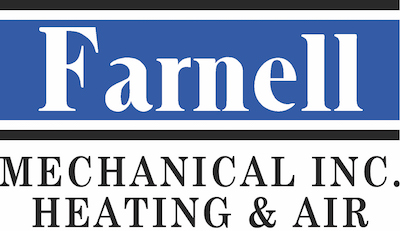
Purchasing your first home is an exhilarating experience. You’re likely trying to keep track of numerous details about making the right choice. We believe that understanding your future HVAC system is essential. The property’s HVAC system represents a significant investment and potential source of long-term costs, illustrating why a detailed inspection helps all first-time homebuyers.
In the following guide, we’ll share seven tips for discovering all there is to know about a home’s heating and cooling system. And if you want a more in-depth opinion from the pros, consider calling Farnell Mechanical, Inc.. Our seasoned technicians can help you compare your options with industry insights you won’t find elsewhere.
1. Which Kind of HVAC System Does the Home Use?
Start by determining what type of HVAC system the home has. Furnaces generally last longer than air conditioners, and relatively new types of HVAC products like heat pumps boast average life spans longer than ever. Getting the details on the make and specific model gives you a clear understanding of how much maintenance it will require.
2. What Is the Current System’s Age?
It’s just as smart to learn how old the HVAC system is when you're looking at a new home. In general, HVAC systems tend to run for about 10-12 years. Learning its approximate installation date helps you anticipate future maintenance needs or when it might shut down for good. Older systems are at a higher risk of problems, so budgeting for a replacement unit could be necessary sooner than you thought.
3. What Does the Warranty Cover?
Check if the HVAC system is still under warranty. If it is, that's great news because it can assist with maintenance expenses. HVAC warranties typically include parts and labor, but specifics will vary. Review any terms you don’t recognize to make sure you fully understand your coverage and the likelihood of out-of-pocket costs.
4. Does the System Have a Documented Maintenance History?
Take a close look at the maintenance history of the HVAC system, if the records are accessible. This service history can reveal if the repair needs are high or how often a tune-up was scheduled. Ask about records for key tasks such as changing the air filter, which is a positive sign indicating regularly scheduled tune-ups.
5. Do You Know Its Energy Efficiency Ratings?
Finding a home that features an HVAC system with great energy efficiency can lead to smaller utility bills and a smaller environmental impact. Try and find the seasonal energy efficiency ratio (SEER) ratings for air conditioning along with the annual fuel utilization efficiency (AFUE) for furnaces. High SEER ratings mean more efficient cooling throughout the season, while higher AFUE ratings indicate that the fuel is efficiently converted into useable heat.
6. Can You Spot Trouble After Your Own Inspection?
Even without the know-how of an HVAC technician, you can still take a moment to examine the HVAC system yourself. Watch closely for any concerning items that weren’t mentioned by the seller or real estate agent. This might consist of odd sounds, spots with uneven heating or cooling and attempts at concealing any serious damage.
7. Have You Sought Out Expert Advice?
If you're unsure about the condition of the HVAC system, it's wise to get input from experienced HVAC professionals. They are skilled at identifying things you may not know about, like leaking coolant, bad electrical connections or damaged ductwork.
A Chat with Farnell Mechanical, Inc. Helps Take the Stress Out of Your Home-Buying Journey
Choosing your first home ought to be exciting, and Farnell Mechanical, Inc. can ensure that doesn’t change. Get in touch with us at 334-524-2458. We can go over the details about how our HVAC services give you peace of mind, giving you what you need to dive into home-ownership with confidence.
